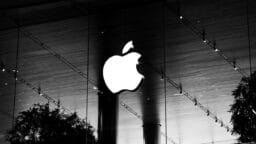Apple’s iPhone Sales Growth Slows but Financial Results Exceed Expectations
SAN FRANCISCO (AP) — During the summertime quarter, sales growth of Apple’s iPhone exhibited a noticeable deceleration. Nonetheless, the pioneering firm achieved financial results that surpassed analyst expectations, while intensifying its pursuit of leadership in the artificial intelligence sector against its Big Tech counterparts.
The financial performance disclosed on Thursday was significantly bolstered by robust demand for the premium models of the iPhone 17 series, which launched last month.
Despite the iPhone 17 not incorporating the advanced AI capabilities seen in recently unveiled devices from competitors like Samsung and Google, Apple enhanced its latest offerings with a stunning redesign, characterized by an elegant “liquid glass” aesthetic on the display screens.
Remarkably, Apple retained much of its pricing structure for the new iPhones, even while navigating the pressures imposed by President Donald Trump’s trade war, which levied tariffs on devices primarily manufactured in India and China.
This strategy evidently resonated with consumers, particularly in the United States and Europe, culminating in iPhone sales that reached $49 billion during the July-September timeframe—an increase of 6% compared to the previous year.
While this growth fell short of the expected 8% rise anticipated by analysts, it still represented a decrease from the 13% surge in sales witnessed during the April-June interval.
With the uplift from iPhone results, Apple reported earnings of $27.5 billion, equating to $1.85 per share, effectively doubling its profit from the preceding year.
Revenue also climbed 8% year-over-year to $102.5 billion, with both earnings and revenue comfortably exceeding the forecasts that steer market performance.
In the aftermath of the announcement, Apple shares surged over 3% in extended trading hours.
In a conference call with analysts, Apple CEO Tim Cook expressed optimism regarding the iPhone 17 series, forecasting continued strong sales, particularly in the upcoming holiday quarter.
“As we head into the holiday season with our most powerful lineup ever, I couldn’t be more excited for what’s to come,” Cook remarked, noting that while the iPhone 17 has gained traction globally, sales in China experienced a 4% decline year-over-year.
Apple’s chief financial officer, Kevan Parekh, projected that iPhone sales could potentially rise by at least 10% from last year’s holiday season, with total revenue anticipated to follow a similar upward trajectory.
The company’s stock has exhibited remarkable growth following a report from the research firm International Data Corp., which suggested a record-setting performance for iPhone sales during the July-September period.

This rally propelled Apple’s market capitalization beyond $4 trillion for the first time earlier this week, setting the stage for further gains in the forthcoming trading session.
However, Apple has broadly been perceived as trailing its competitors in the current AI surge, a factor contributing to Nvidia’s recent valuation as the first chipmaker to achieve a $5 trillion market cap.
Last year, Apple had promised a plethora of AI enhancements for its iPhone models, yet only a fraction have been realized. Notably absent was a revamped version of its frequently perplexing Siri virtual assistant, which Apple now anticipates will not be completed until next year.
Historically, Apple has exhibited a penchant for lagging in technological advancements, only to eventually adapt and emerge as a leader in its field.
If Apple successfully integrates additional AI features into its iPhones, Wedbush Securities analyst Dan Ives posits that such innovations could augment the company’s market share by an estimated $1 trillion to $1.5 trillion, translating to an increase of $75 to $100 per share.
Source link: Bnnbloomberg.ca.






